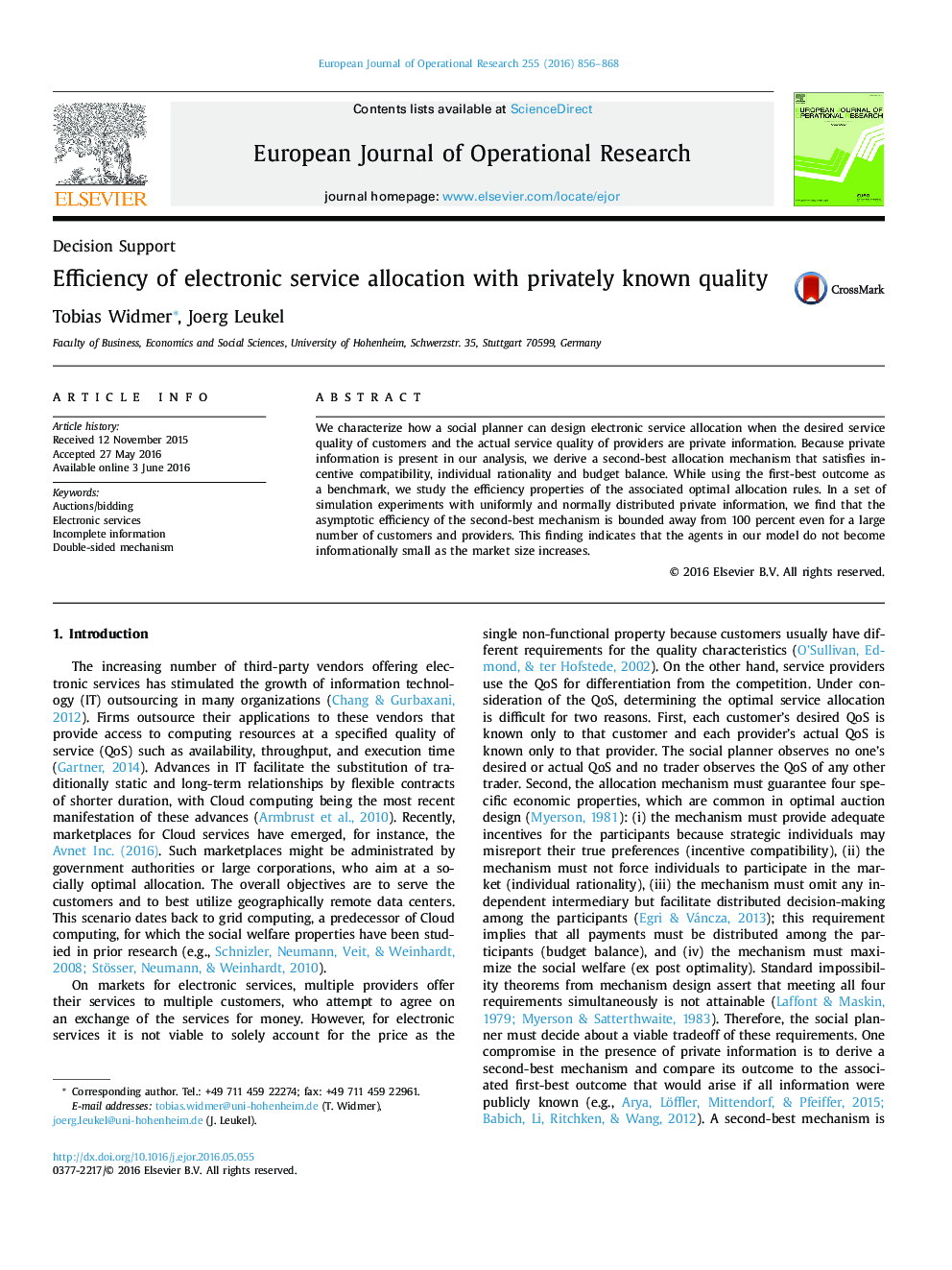| Article ID | Journal | Published Year | Pages | File Type |
|---|---|---|---|---|
| 4959818 | European Journal of Operational Research | 2016 | 13 Pages |
Abstract
We characterize how a social planner can design electronic service allocation when the desired service quality of customers and the actual service quality of providers are private information. Because private information is present in our analysis, we derive a second-best allocation mechanism that satisfies incentive compatibility, individual rationality and budget balance. While using the first-best outcome as a benchmark, we study the efficiency properties of the associated optimal allocation rules. In a set of simulation experiments with uniformly and normally distributed private information, we find that the asymptotic efficiency of the second-best mechanism is bounded away from 100 percent even for a large number of customers and providers. This finding indicates that the agents in our model do not become informationally small as the market size increases.
Related Topics
Physical Sciences and Engineering
Computer Science
Computer Science (General)
Authors
Tobias Widmer, Joerg Leukel,
